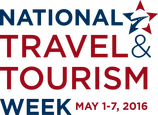|
There's craft beer absolutely everywhere. It's made its way onto menus not only at cafes, bars, and pubs - but increasingly we're starting to see it pop up on beverage lists at signature and gourmet dining restaurants as well. So, what's going on? Are we in the middle of a craft beer revolution?
Well first of all, no, this isn't a revolution? Back in the late 1800s, there were more breweries in the United States than there are today. By our calculation there's about 2,500 to 2,800 breweries operating today in comparison to more than 4,000 in the 1870s. So instead of the revolution so many people want to label the craft beer movement with, a more appropriate label might be: Craft Beer: The Comeback Kid. So, what gives? Why the resurgence with craft beer? Well, there's three main reasons:
The cost of starting up a brewing operation today is significantly less expensive today than it was 30, 40, or 50 years ago. Not only are things made more efficiently, but we're living in the midst of the so-called sharing economy and craft beer brewing is an extension of that in some ways. Today, it's common for craft brewers to share equipment, ideas, and experience amongst each other that hasn't always been possible. Another contributing factor is the deregulation of home brewing. In the late 1970s the government made it legal for people to brew beer at home and it educated a lot of people that the stuff you could buy in 24 packs at the grocery store might not be the pinnacle of beer. The plethora of craft, small batch, and limited run beers that we have access to today are an extension of that. And finally, this comeback is largely attributable to entrepreneurial brewers working around regulations such as the three-tier system and other distribution policies and laws. These things stand in the way of getting beer into the hands of beer drinkers. It's still far easier to give your beer away for free than sell it. And that's why craft beer is such a big thing right now. But, we still have a long way to go. If you think the options are abundant and varied now, just think what have been and could be again.
2 Comments
 Does this election season have you thinking, “I need a vacation”? Though you may not realize it, you’re actually doing your country a great service if you take one. When you pack your bags and travel, you’re helping to grow local economies, create American jobs and improve your own work performance, relationships and personal well-being. That’s why policies that protect and promote travel—from improvements to our roads and airports, to safely keeping America’s doors open to international visitors—are necessary for the health of our country. Right now, we’re working to highlight how important the travel industry is for the Dallas/Fort Worth area, and making sure that our elected officials, both on the campaign trail and off, know it. First, let’s start with travel’s huge role in our national economy post-recession. The U.S. travel industry, according to the Bureau of Labor Statistics, has recovered far faster than other economic sectors since 2008. Today, travel is a $2.1 trillion industry that supports one out of nine U.S. jobs. That benefit didn’t just stay in top tourism hubs like New York, Orlando and Las Vegas; it ripples throughout communities nationwide. In Dallas alone, for example, more than 44 million people visit each year and spend in excess of $7.4 billion. Travel and tourism in Dallas accounts for nearly 90,000 jobs. Travel also brings remarkable benefits to our personal lives. Multiple research studies have confirmed the positive health effects from vacations and time off, from reducing risk of heart disease to decreased depression. According to a Project: Time Off survey, most kids (61%) look forward to family vacations as a time to bond with their parents—and kids who travel are more likely to graduate from college, and earn an average of $5,000 more annually as adults. And at work, most bosses (80%) agree that employees taking vacation is good for their team. Given these extraordinary returns, and in light of National Travel and Tourism Week (May 1-7, 2016), it’s important that elected leaders seek avenues to support and expand travel to and within the U.S., and right here in Dallas/Fort Worth and Plano. Modernizing our travel infrastructure, particularly our airports, is one critical step. Not a single U.S. airport is ranked in the top 25 in the world. This is partly due to the financing structure that funds improvement projects at major airports, which has not been altered since 2000. If that were corrected, airports could modernize our World War II-era air traffic control system, make much-needed safety updates and add gate space—which would spur competition among airlines by allowing more carrier options, improving prices and service for customers. Strengthening the Visa Waiver Program (VWP), as well, would both boost our economy and improve security for all travelers in the U.S. The program allows pre-screened and pre-approved travelers from 38 of America’s closest and most trusted allied countries to enter the U.S. without a visitor visa. The VWP not only strengthens diplomatic relations and security standards, but VWP traveler spending also generates $190 billion in U.S. economic output each year. This valuable program has faced ill-informed attacks from candidates and elected leaders in both parties, and while legislation was passed late last year to tighten its security protocols further, we must remain ready to defend it from policies that may undermine the program’s true purpose. We are also in position to boost travel’s effect on our lives and the DFW-area economy, by encouraging the American workforce to use their earned time off. The U.S. is well on its way to becoming a “no vacation nation,” with a 20-percent decline in vacation days used since the year 2000. Many workers cite a lack of encouragement from employers and a work culture emphasizing productivity above balance. This lifestyle has consequences for our health, our relationships and our families. Plus, if workers took just one more day off each year, it would generate an extra $73 billion annually for the economy. Travel makes a difference in our communities and lives every day. As we celebrate the impact of travel this week, let your lawmakers know that they should promote strong travel policies that improve our business, economic and personal well-being. |
Compliance, Legal, Privacy, & Terms of Use
Copyright © 2012-2023 Service Metrics Group LLC and Service Metrics Group Limited. All rights reserved. All trademarks and registered trademarks are property of their respective owners.
Copyright © 2012-2023 Service Metrics Group LLC and Service Metrics Group Limited. All rights reserved. All trademarks and registered trademarks are property of their respective owners.



